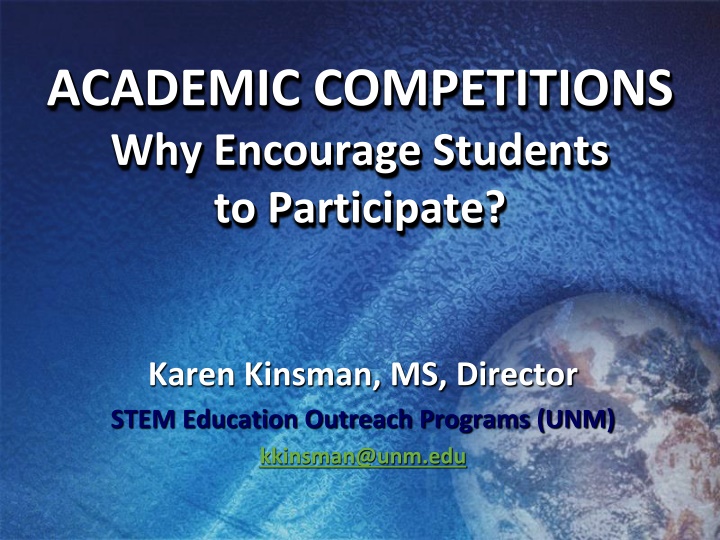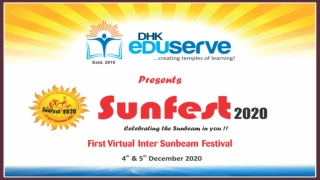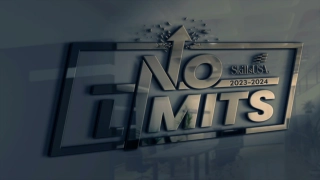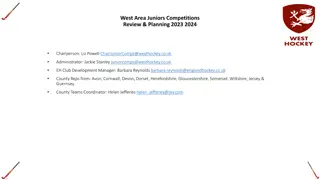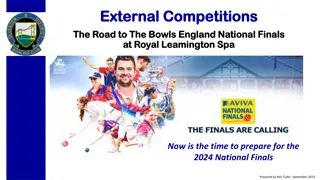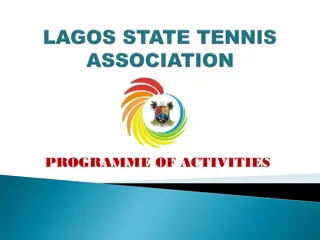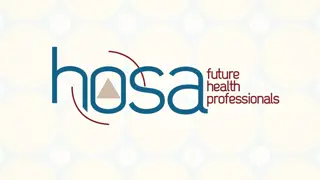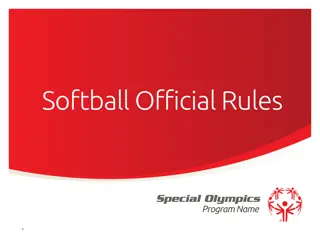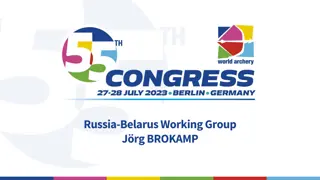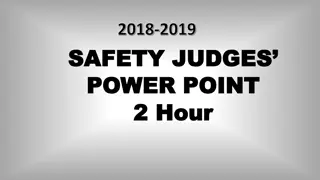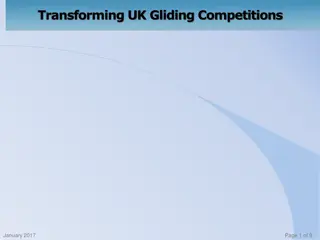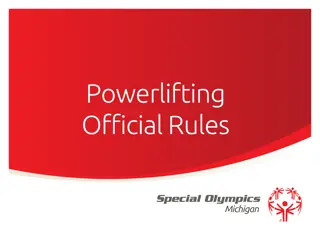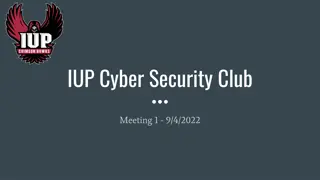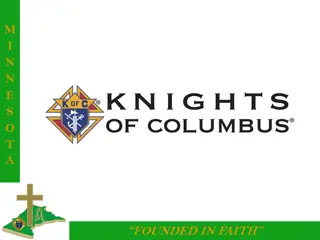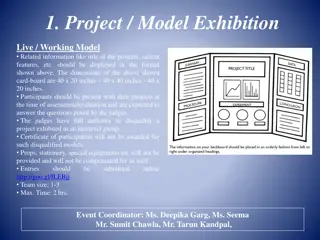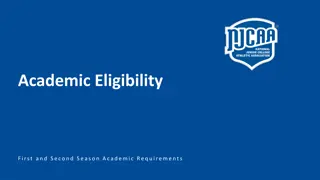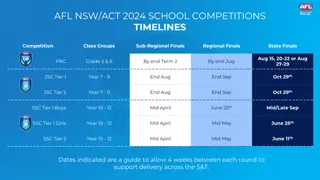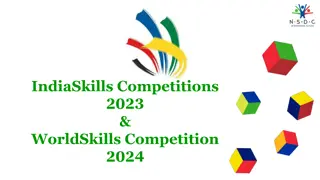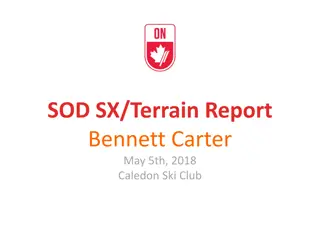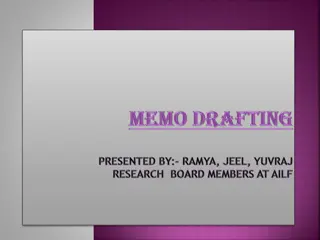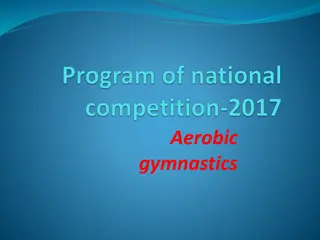ACADEMIC COMPETITIONS
Academic competitions, such as science fairs and research challenges, offer students valuable opportunities for personal growth, skill development, and exposure to new ideas. Encouraging participation in these events can help students build confidence, improve communication skills, and explore their interests in science, technology, engineering, and math (STEM) fields. Discover the benefits of academic competitions through insights from educators and professionals in the field.
Download Presentation

Please find below an Image/Link to download the presentation.
The content on the website is provided AS IS for your information and personal use only. It may not be sold, licensed, or shared on other websites without obtaining consent from the author.If you encounter any issues during the download, it is possible that the publisher has removed the file from their server.
You are allowed to download the files provided on this website for personal or commercial use, subject to the condition that they are used lawfully. All files are the property of their respective owners.
The content on the website is provided AS IS for your information and personal use only. It may not be sold, licensed, or shared on other websites without obtaining consent from the author.
E N D
Presentation Transcript
ACADEMIC COMPETITIONS Why Encourage Students to Participate? Karen Kinsman, MS, Director STEM Education Outreach Programs (UNM) kkinsman@unm.edu
Agenda 1. So, Why Encourage Students to Participate? 2. Science Fair/Research Challenge 3. Science Olympiad 4. Other Academic Competitions 5. So, What s Keeping Us From Participating? 6. Be Part of the Solutions! 7. WII-FM: What s In It For ME?? 8. Resources for Teachers
Why Encourage Participation? WII-FM Better known as What s In It For Me? Students need to know they won t get fully invested in something unless they believe there s a payoff. As a young girl, being involved in Science Olympiad with other girls created an instant support group; together we discovered that women can succeed in the fields of engineering, math, and science. -Vanessa Rogers Management Consultant, IBM I started competing in the science and engineering fair when I was in kindergarten, and continued to participate in it through my high school years. In high school, I earned the honor to attend and compete at the International Science & Engineering Fair. Words cannot accurately describe how incredibly rewarding this experience was for me, but it is definitely one that will forever remain in my memories. Among other things, participating in the science fair helped build my character and raise my self-esteem, so that I could overcome shyness and perfect my public speaking skills. (Doing inquiry-based research projects) promotes enthusiasm for science, helps improve speaking and writing abilities, exposes students to new, fascinating innovations and ideas in the scientific world, and introduces practical application of the scientific method. Whether students experience it at the local, regional, state, or even international level, each and every participant gains something more in his or her life. -Krystal Wood, APS Teacher Monte Vista Elementary UNM Graduate 2004
Research Challenge (akaScience Fair) The Intel International Science and Engineering Fair (Intel ISEF) is the world's largest pre-college celebration of science. Held annually in May, the Intel ISEF brings together over 1,400 students from 60+ nations to compete for scholarships, tuition grants, internships, scientific field trips. Grand Prizes: $50,000 college scholarships and a high-performance computer as well as a $75,000 grand prize. Society for Science & the Public founded the ISEF in 1950 and is very proud to have Intel as the title sponsor of this prestigious, international competition.
Research Challenge (akaScience Fair) ISEF Regional/State ISEF Affiliated Fairs Send Qualifying Projects Directly to ISEF as Finalists. State Research Challenges Regional Research Challenges Local/School Research Challenges
Erika DeBenedictis Albuquerque, NM 2009 ISEF Top Winners Visit CERN
Science Olympiad The Science Olympiad mission is to improve the quality of K-12 science education throughout the region. The Science Olympiad Vision to accomplish this mission is: To create a passion for learning science by supporting elementary and secondary Science Olympiad tournaments at building, district, county, and regional levels with an emphasis on teamwork and a commitment to excellence.
Science Olympiad To improve the quality of K-12 science education throughout the region to change the way science is perceived and the way it is taught (with an emphasis on problem solving skills and hand-on, minds-on constructivist learning practices). To celebrate and recognize the outstanding achievement of both students and teachers in the areas of science and technology by providing numerous awards during competition. To promote partnerships among community, businesses, industry, government and education. To improve and restructure the way science is taught and learned by conducting staff development and curriculum development workshops.
Science Olympiad Team competition Many different events in which 1 or more team members compete 1st through 3rd place ribbons are given to winners in each event All scores are totaled and the top 3 teams are given grand award plaques About 75% of teams at regionals will go on to compete at the State Science Olympiad 1 team from each division at the State Science Olympiad will go on to compete at the National Science Olympiad
Other Competitions There are many, many other excellent STEM related challenges & competitions available to our students. Here is just a small sample Academic Decathlon/Pentathlon, American Mathematics Competitions, Destination ImagiNation, Economics Challenge, FIRST LEGO League, Junior Engineering Technical Society, Knowledge Bowl, Math Olympiads, MathCounts, DECA, FFA, Mathemathics League, Junior Science/Humanities Symposium, Super Mileage Challenge, National Science League, The Stock Market Game, US National Chemistry Olympiad, Youth Energy Summit, Future City Competition, RoboRave International, World Scholars Cup
So, Whats Getting In The Way? In teams of 2 or 3, spend five minutes brainstorming a list of barriers/obstacles that keep teachers from sponsoring or coaching & students from participating in academic competitions.
Be Part of the Solution! Now, spend a few minutes brainstorming possible solutions to these barriers/obstacles! What are some potential ways to get around the barriers?
What IS In It For Students? Scholarships Awards Recognition Money Networking Confidence Better Self-Esteem Broader Skills Base College/Career Prep Gaining a Sense of Direction What Can I Learn? LOTS of Science, Technology, Engineering, Math, History, Art, Music, Economics, Language & Literature, etc. Teamwork Public Speaking Problem Solving Communication Skills Leadership Skills Higher Level Thinking Collaboration Organization Goal Setting Time Management Safe Risk Taking
Resources for Teachers Listing w/ contact information can be found at http://www.synergyexchange.org/Sy nergy/media/Synergy/2011-2012- Reach-for-the-Stars.pdf The above is a PDF copy of the Reach for the Stars catalog of academic competitions/ challenges/programs many are national and accessible to schools outside of Minnesota where the catalog is produced.
Resources for Teachers STEM Education Outreach Programs Central NM S&E Research Challenge, Central NM Science Olympiad, Teacher/Student Workshops, Teacher Resource CD (files available on our website) http://stemed.unm.edu (sign up for our Electronic Mailing List on our homepage) (505) 277-4916 Karen Kinsman, Director; Erin Garcia, Program Specialist Intern; Liz Maher, Administrative Assistant NM Science & Engineering Fair & NM Science Olympiad (575) 835-5678 Rose Baca, Director www.nmt.edu/~science/fair www.nmt.edu/~science/olympiad
2011-2012 TEACHER RESOURCE CD CONTENTS 10 Reasons to Support Student Research 2009-2010 ISEF Forms Flowchart - Spanish 2009-2010 ISEF Rules & Forms 2009-2010 ISEF Rules Overview Handouts 2009-2010 Periodic Table 2009-2010 SRC Flowchart Abstracts - Spanish Explanation Assignment Not Done FORM Awesome Science Research Projects Classroom Lab Safety - Elizabeth Griffin Classroom Timesavers Display Boards - Spanish Handout Ethics in Research Agreement 2009-2010 ISEF Forms Flowchart - English 2009-2010 SRC/IRB/IACUC Flowchart Animal Research Plan Guidelines Awesome Engineering Projects Classroom ISEF Forms Checklist-Rubric Classroom Lab Safety - Karen Wetterhahn Data Mining Project Checklist Dr. Foreman - ABQ Journal 5/20/08 Experiment With Science in Your PTA Firearms, Air/CO2/Pellet/BB/Paint Guns, Object Launching Devices, Archery Equipment, Model Rockets, & R/C Aircraft Project Guidelines Forming a Local SRC/IRB Good Abstracts PowerPoint Gr. 9-12: Inquiry Based Student Research Projects NM Standards Match Human Subjects Guidelines Experimental Design Worksheets Form 4 Requirements & Guidelines Good Abstracts Handout Gr. 5-8: Inquiry Based Student Research Projects NM Standards Match Human Subjects Checklist
References Burke, Robert, Science Fair Projects 5 Valuable Benefits For Your Child, http://EzineArticles.com/?expert=Robert_Burke; November 8, 2007. Helmenstine, Ph.D., Anne Marie, Why Do A Science Fair Project? http://chemistry.about.com/od/sciencefairprojects/f/whydosciproject.htm. Mercer Science and Engineering Club Kickoff Meeting, Participating in a Science Fair Benefits Students! June 2004. Minnesota State University Mankato, Benefits of Participating in Science Fair, http://www.mnsu.edu/sciencefair/studentparent/benefit.html. Ning, Lily T., Middle School Science Fair, http://www.accessexcellence.org/LC/TL/scifair/sfintro.php. Ozturk, Mehmet A.; Debelak, Charles, Gifted Child Today, Volume 31 Issue 2 Publication Date: Spring 2008 Page Number(s): 48-53. Report Summary: America s Pressing Challenge Building a Stronger Foundation: A Companion to Science and Engineering Indicators 2006, http://www.nsf.gov/statistics/nsb0602.
References Science Olympiad Brochure, 5955 Little Pine Lane; Rochester, Michigan 48306; www.soinc.org; 2005 Science Olympiad: The Role of Competition in Collaborative Science Inquiry, Based upon work supported by the National Science Foundation under Grant No. 0196240; 2000-2003. Tieso, Carol L. (University of Connecticut), Academic Decathlon and Secondary Students, NRC/GT 1998 Winter Newsletter. http://gifted.uconn.edu/nrcgt/newsletter/winter98/wintr984.html Toomey, Angelina C.; Telg, Ph.D., Ricky, Critiquing the Contest: Assessing the Benefits of a Collegiate Academic Competition, Research Paper Submission, University of Florida, 2008. Yasar, Senay; Baker, Dale, The Impact of Involvement in a Science Fair on Seventh Grade Students, Presented at the Annual Meeting of the National Association for Research in Science Teaching,March 2003.
